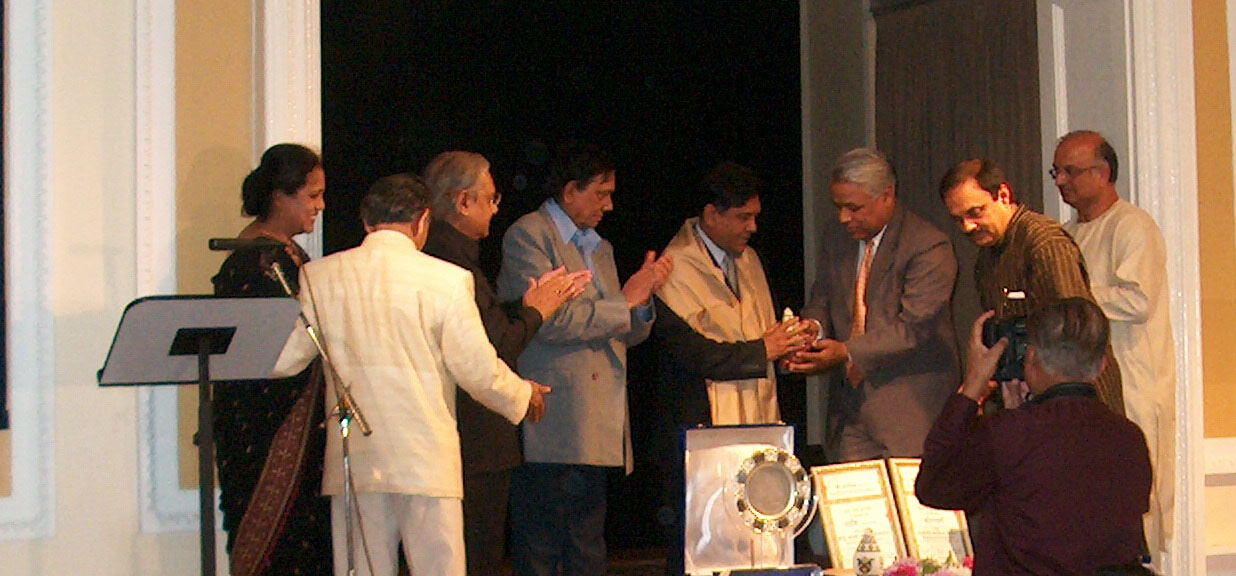Dr. Gautam Sachdev in his scholarly analysis of Darosh
aur anya kahanian said, "The stories in Darosh are the stories of struggle of life and specially the struggle of old people
and children who through the weapons of old cultural values and an ideal future are trying to take cudgels against corrupt
and selfish society. Harnot has the social realism of Premchand and the language
of Fanishwara Nath Renu intrinsically woven together."
Mr. Vikas Swaroop, Counsellor in the High Commission of
India, in a very interesting style, introduced Mr. S.R. Harnot to the audience. Deepti Sharma gave an emotional rendering
to the story Billian batiaati hain (The cats chat) which was highly appreciated by the audience.
Anil Sharma, the Hindi and Culture Officer at the High
Commission of India,
while speaking on Sonmachhli, pointed out that we should be able to differentiate between popular literature and cheap
literature. The basic requirement of any literature to be termed important is readability. Sonmachhli is immensely
readable and its characters and setting is very real. He congratulated Katha (UK)
for choosing Bhartendu Vimal's novel for Padmanand Sahitya Samman.
Padmesh Gupta, the editor of Purvaai, nostalgically
travelled back to fifteen years and shared with the audience his association
with Bhartendu Vimal. He talked about different aspects of Vimal's personality as a writer, broadcaster, moderator and purohit.
Noted radio artist Shri Ram Bhatt, Anjana Sharma, Shabnam and Deepti Sharma presented a dramatic reading of a portion of Sonmachhali.
Bhartendu Vimal, while accepting his award recollected
the process through which the writing of Sonmachhli went through. He informed the audience that while the novel was being
serialised in Mahanagar in Mumbai, he had received death threats and the names of people and places had to be changed under
those threats. He thanked the judges of Katha (UK) for selecting
his novel for Padmanand Sahitya Samman.
Mrs. Naina Sharma, the Deputy chairperson of Katha (UK)
passed the vote of thanks and also provided tasty food to one and all.
People from media, literature and academics formed the
audience. Among those present were Shri Kailash Budhwar, Achala Sharma, Perveiz Alam, K.C. Mohan, Naresh Arora, Virendra Sandhu,
Shail Agrawal, Vibhakar Baxi, Ramesh Patel, Ramesh Muradabadi, Ved Mohla, Punjabi writer Amar Jyoti, singer Avtaar Uppal,
Manji Patel Vekharia, Shivani and Mohammad Amin.


